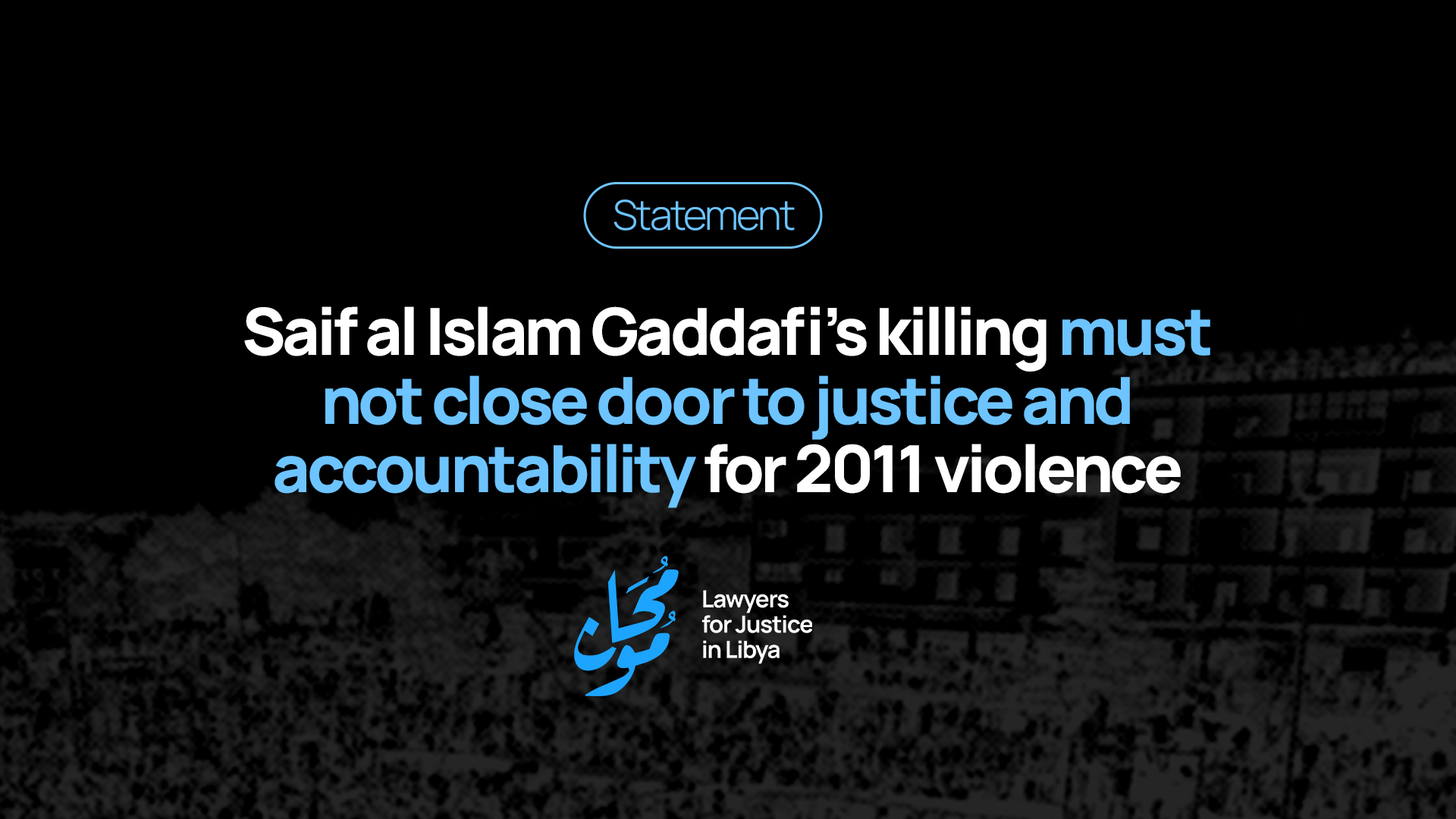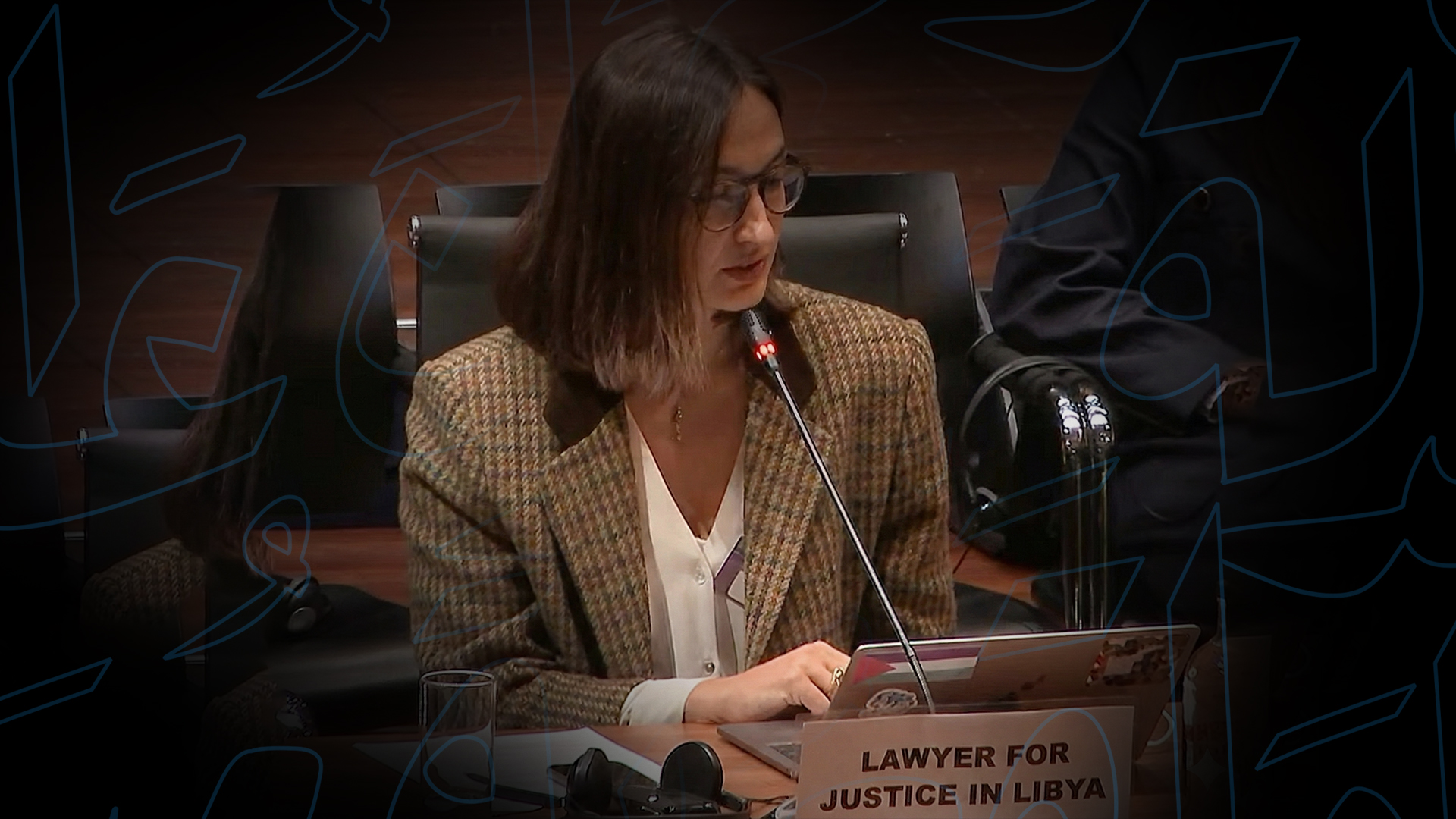LFJL welcomes the prospect of new ICC arrest warrants
Lawyers for Justice in Libya (LFJL) welcomes the statement from the Prosecutor of the International Criminal Court (ICC), Fatou Bensouda, to the United Nations Security Council (UNSC) on the situation in Libya. The Prosecutor’s statement on 9 November 2016 highlighted her office’s commitment to carry out investigations into past and ongoing international crimes in Libya with intensified investigation efforts and as a priority situation in the forthcoming year. This offers a renewed prospect of ending the absolute impunity enjoyed by those who have carried out human rights violations in Libya.
With the unanimous adoption of Security Council Resolution 1970 in 2011, the situation in Libya since 15 February 2011 was referred to the Prosecutor of the ICC in order for the OTP to investigate alleged crimes. Since then, the continuous nature of this mandate has regularly been confirmed, enabling consideration of ongoing and present violations.
Despite the Office of the Prosecutor’s (OTP’s) ongoing mandate and the Prosecutor’s regular acknowledgement of the occurrence of relevant crimes being carried out with impunity in Libya, only three arrest warrants have been issued to date since 2011. In previous statements, the Prosecutor has attributed the lack of new arrest warrants to financial constraints and the dangerous security situation obstructing the OTP’s staff from progressing investigations on the ground. LFJL has previously expressed its disappointment, noting the negative impact the Court’s inaction has had on accountability for human rights violations and that it had failed to provide a sufficient legal deterrent to further abuses.
However, the OTP’s twelfth report on the Situation in Libya to the Security Council suggests a renewed commitment to supporting accountability and justice efforts in Libya. The OTP once again recognised the deterioration of the security situation and its impact on innocent civilians, and condemned alleged crimes committed by Daesh, Ansar Al-Sharia and other parties to the conflict in Libya. The Prosecutor expressed her desire to treat Libya as a priority situation in 2017 and to collaborate with the United Nations Support Mission in Libya (UNSMIL) so that the OTP investigators could return to their work inside Libya as soon as possible. The Prosecutor stated her intention to report on “tangible results” from this renewed engagement by May 2017 and, critically, her Office’s hopes to secure new arrest warrants in the near future.
LFJL Director, Elham Saudi, remarked “The actions of the Prosecutor and the OTP offer renewed hope to the prospect of ending the absolute impunity enjoyed by those responsible for past and ongoing atrocities in Libya. It is absolutely vital at this critical stage that the OTP is supported by both the international community and the Libyan State so that it is able to carry out its mandate effectively.” She added, “It is vital that the OTP also learns from the lessons of its engagement in Libya over the past five years. To have a longstanding and effective impact on impunity, the OTP’s renewed efforts must also be met with a renewed commitment to communicate and collaborate with the Libyan public and Libyan civil society. It is vital that the ICC is perceived to be an impartial ally, which is interested in working with Libyans to realise justice and accountability for grave crimes, and not as unilateral force motivated solely by its own institutional interests.”
In order for these renewed efforts to be successful, LFJL urges the international community to ensure adequate support for the OTP in its ongoing efforts, through collaboration and by providing sufficient financial resources. Both the UNSC and State Parties and non-State Parties to the Rome Statute should affirm their commitment to justice by supporting the OTP’s request in this respect. The Libyan State should also facilitate the new investigations, as it is obligation to under Resolution 1970, and seek to engage the ICC in a creative and cooperative fashion. LFJL suggests examining the opportunities presented by the prospect of “positive complementarity”, namely the ICC’s role in supporting and assisting States Parties in undertaking national prosecutions of international crimes. There is, for example, sufficient scope for Libya to negotiate ICC trials being held in country, which as of yet remains an unexplored alternative. LFJL also calls on the OTP to seek to operate in a way which communicates their mandate and operations to the Libyan public effectively at this sensitive time.





